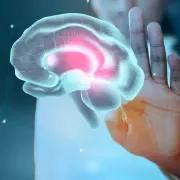Fortis Nephrologists’ Dietary Advice for Kidney Health
In This Article
Fortis Nephrologists’ Dietary Advice for Kidney Health
Parvathy
Updated on October 11, 2024
Medically verified by Dr. Arya
Fact checked by Dr. Fazeela

Neurology
10 mints
As chronic kidney disease (CKD) is increasingly prevalent worldwide, maintaining your kidneys in tip top condition is more crucial than ever.
Diet plays a direct role in how the kidneys work and for people at risk of having or living with kidney disease making informed dietary choices can slow the rate of kidney damage progression.
Experts working on the field of nephrology at Fortis, a chain that offers expertise in caring for the kidneys, strongly emphasise the importance of nutrition in maintaining kidney health.
In this blog by Karetrip, we will share some specialist advice from Fortis Hospital neurologists on how a balanced, kidney friendly diet can help prevent damage, control the condition and keep you healthy over the long run. It’s not just about preventing kidney disease; if you already have C.K.D. These dietary guidelines can help to keep it at bay and maintain kidney health.
General Dietary Guidelines for Kidney Health
Most of the nephrologists talk mainly about not overworking the kidneys. Your kidneys must process every food you consume meaning that overloading them with certain nutrients, especially in excess, can hasten damage. Here are some general dietary guidelines provided by Fortis Hospital nephrologists
- Reduce Sodium Intake
High blood pressure caused by high sodium levels damages kidneys. If your diet contains a lot of salt, this can cause fluid retention and swelling of the ankles, hands or face.
If you have healthy kidneys, limit sodium to less than 2,300 mg/day, and less is better with CKD. Processed foods, canned soups and fast foods are avoided as they normally contain large volumes of sodium. Eat fresh or frozen vegetables and season your food with herbs and spices rather than salt.
- Manage Protein Consumption
Protein is important for muscle and tissue building but too much of it can put too much strain on the kidneys. Increased protein intake leads to increased production of such waste products as urea and kidneys must filter them out.
Those on dialysis or with kidney disease may also be asked to cut down on protein intake, because lower protein intake eases the load on the kidneys. If you are at risk for kidney disease, minimise your intake of animal proteins (meat, fish, eggs) and balance it with plant based proteins (lentils, beans, tofu). Consultation with a dietitian is often recommended by a nephrologist.
- Hydration
Keeping your kidneys in good condition is important, so be sure to keep drinking enough water. Water washes out toxins and forestalls the creation of kidney stones. More isn’t always better though, especially for people with advanced CKD where fluid intake may need to be restricted.
Unless otherwise directed by a healthcare provider, aim for 8-10 glasses of water daily. The amount of fluid you can safely take in depends on how well your kidneys work if you have kidney problems.
- Adopt a Plant-Based Diet
Eating a diet that includes a lot of fruits, vegetables, whole grains and legumes, has been linked to a healthier kidney. Lower in phosphorus and protein and therefore less stressful on the kidneys, plant based diets typically provide essential nutrients needed for health.
Kidney friendly include foods like leafy greens, berries, apples and bell peppers in your diet. If you have CKD, limit your banana and oranges consumption.
 10 min read
10 min read10 Neurological Benefits of Exercise - Positive Psychology
 10 min read
10 min readChoosing the Right Neurology Hospital: Factors to Consider for Patients and Families
 10 min read
10 min readTop 10 Neurology Hospitals in India
Get a Callback Now
Nutrients to Focus On for Kidney Health
Some nutrients are very important for the function of the kidneys. People at risk for or living with kidney disease should watch what they take in for potassium, phosphorus, and calcium. Here’s what nephrologists at Fortis Hospital suggest
- Potassium
Potassium regulates nerve and muscle function, but too much or too little can be a problem. But people with CKD have damaged kidneys that don’t know when to stop excreting potassium and in doing so, allow the levels to build up, which can cause dangerous heart rhythms.
If you’re managing CKD, it's important to monitor potassium intake. Other high potassium foods include bananas, spinach and potatoes. Apples, cauliflower and white rice have lower potassium than most.
- Phosphorus
If your kidneys aren’t removing enough phosphorus, it can accumulate in your blood and it may damage your bones and cause heart disease. Phosphorus intake usually is restricted in people with CKD.
Dairy products, beans, nuts and processed meats are generally foods high in phosphorus. Reduce phosphorus intake by choosing fresh meats and omitting processed cheese, or if prescribed by your nephrologist, try phosphorus binders.
- Calcium
Presence of calcium more than the required amounts often lead to conditions like kidney stones. So always keep track of your calcium consumption. It is advisable that you don’t take calcium supplements. Rather get the source of calcium from fortified plant based milk, low phosphorus dairy products and some vegetables including kale.
Foods to Avoid for Maintaining Kidney Health
Balanced diet is essential for healthy kidneys, however, for those at risk of or having kidney disease certain foods should be avoided or limited. Here are some of the foods that nephrologists of Fortis Hospital advise against
-
Processed Foods: Canned soups, frozen meals and fast foods contain large amounts of sodium, phosphorus and unhealthy fats. Foods like these can increase blood pressure and also result in kidney damage. It is better to stick to a diet containing fresh, whole foods whenever you can and try to consume foods prepared at home in most cases to control added salt and preservatives.
-
High-Potassium Foods: For people with CKD, however, too much potassium can be dangerous, causing problems with the heart. Usage of high content potassium foods such as bananas, oranges, potatoes, and spinach must be limited or replaced with low potassium alternatives
-
Sugary Beverages: Soda, sweetened teas, and energy drinks are packed with sugar, causing diabetes, obesity and kidney damage. Also sugary drinks offer little nutritional value which is not mandatory. Try to minimise sugar consumption.
-
Herbal Supplements: Many herbs are marketed to be healthy supplements, but if consumed in large doses, they can be hazardous to the kidneys. St. John’s Wort, ginseng, even some vitamins can interact with your medications or make your kidney problems worse. Make sure you always ask your doctor before you take any supplements, especially when you have a kidney condition.
The information provided represents the views and opinions of Karetrip. It is crucial to conduct your own independent research before making any decisions regarding your healthcare journey.
A proactive approach is mandatory in maintaining proper kidney health.
Every choice you make when eating affects your kidney function, from managing sodium and protein intake to getting the right nutrients in your diet, including potassium and phosphorus.
Fortis Hospital nephrologists provide expert advice on how you can protect your kidneys, manage CKD and lead a healthier life by following the dietary advice recommended by them.
For long term good kidney health, regular check ups, dietary adjustments and lifestyle changes are essential.
Starting the fight to save your kidneys early gives you a better chance at avoiding or slowing the progression of your kidney disease.
It's better to start early adopting a kidney-friendly diet than to wait until you’ve developed symptoms.
Source Links
Associates in nephrology

